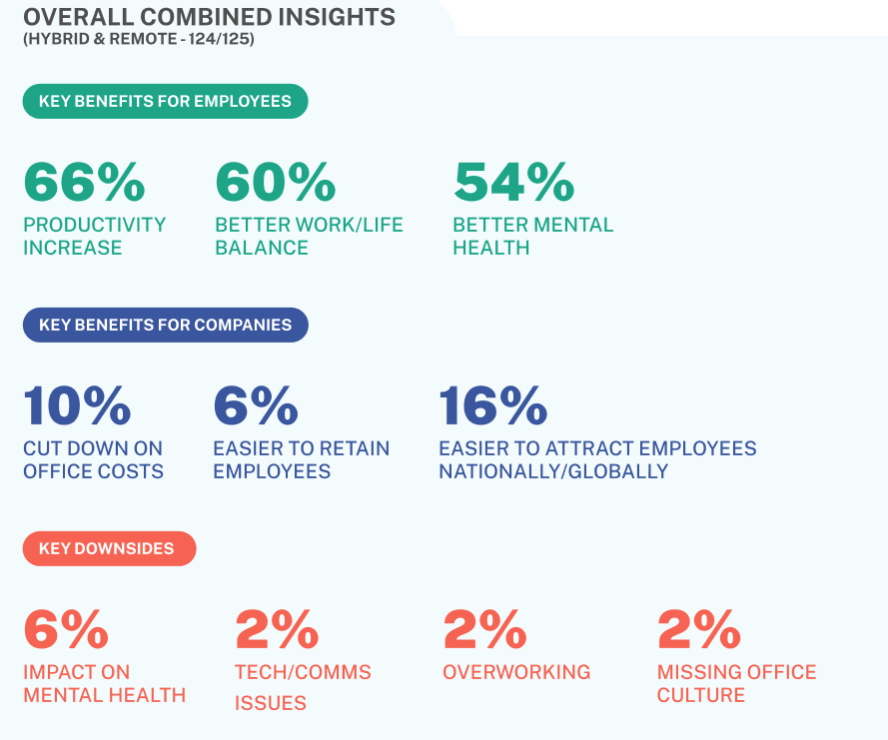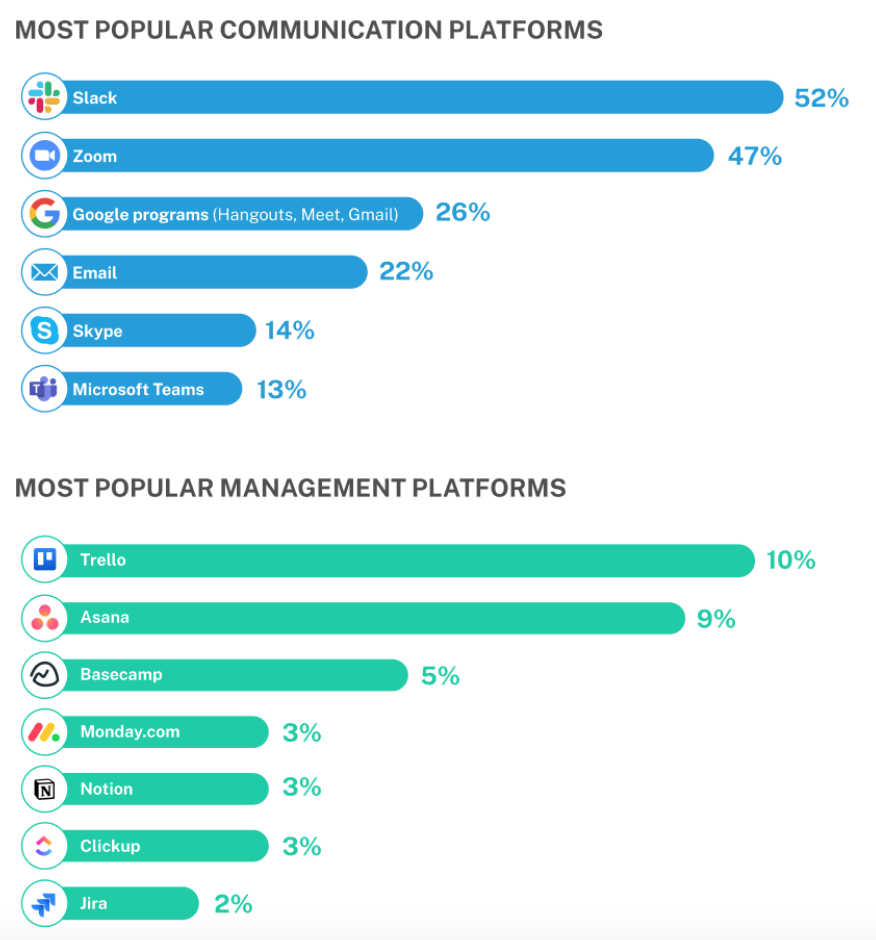While some have claimed that employees working from home are less productive, or even essentially ‘slacking off,” new data tells a different story. New research from Expert Market based on interviews with 125 European and North American companies about their hybrid/remote operations since the COVID pandemic began highlights the main benefits and drawbacks they’d seen for their employees and their company, as well as what programs and platforms they’ve used to keep their operation going.
Here are the key findings:
-
92% of respondents saw positive benefits of flexible working options – with only 16% reporting negative impacts
-
94% stated that they will continue working in a hybrid/remote way
-
Slack was the most popular program for workplace communication, with 52% using the platform
-
Only one of the companies has returned to the office completely
Expert Market conducted a similar report with 100 business owners in May 2020 around remote working. 90% of companies then saw positive WFH benefits – the recent May 2022 report shows an increase to 92%. Some of the key benefits and downsides they stated were:

Due to the success of these setups, 94% of the companies stated that they will continue working in a hybrid/remote way in the future.
Only 7% of the companies using a hybrid work approach aim to eventually return to the office full time in the next couple of years. The remaining 93% will continue in a hybrid way. When asked how many days employees work in the company’s offices, the most popular options stated were ‘At employee discretion’ (38%) and two days per week (26%).
Nearly three-quarters (74%) of the fully remote companies stated that they will stay remote; 22% will move to a hybrid way of working, and 4% aim to return to the office in the next year.
An emerging trend stated by some remote companies is to use co-working spaces for any employees who’d like office time with fellow colleagues:
‘We don’t plan on returning to the office full-time in the future, but we’ll offer flexible workspace options to our employees. Giving co-working access to all team members for a more flexible workspace that provides for the needs of employees who enjoy working in an office environment,” said Monica Chan, Co-Founder of DigiWorks.
Only 16% of respondents stated that there were negative impacts of hybrid/remote working including – Isolation having an impact on employee mental health (6%), tech/communication issues (2%), issues with employees overworking (2%), and missed office culture/relationships (2%). This is very different than the findings in the the 2020 report, when 71% of business owners said they’d witnessed negative impacts, such as a reduction in productivity, difficulty maintaining the work/life balance, and difficulty in assessing accountability.
Expert Market also asked the 125 companies which programs they’ve relied on the most for hybrid and remote working. Slack was the most widely used work chat program with 52% of the companies using it. For video chat platforms, Zoom was most popular with 47% of the companies using it for communicating with colleagues and clients. Here’s the breakdown of the most used communication and collaboration platforms:

Some of the CEOs found that flexible working changed their whole attitude around how to operate a business. One participant, Jason Brown, Founder and CEO of Family Central, commented, “Throughout my career, I was a firm believer that you build successful teams by working in-person day-to-day. The pandemic opened my eyes to the possibility of building great teams that thrive in a completely remote and/or hybrid setting. With my current startup, we are completely remote and the benefit of this is being able to recruit and retain top talent across the world. We do not have plans for a physical office building at this time. Every employee has a unique life, meaning their family situations are different, their living situations are different, and their hobbies are different. An understanding and appreciation for these differences are key to having a hybrid or fully remote workplace and one that inspires and empowers its team. When a team feels supported and respected, they will deliver great results.”
Expert Market editor Chloe Mayo commented on the research findings: “It’s hardly surprising that businesses are keen to keep their flexible working practices considering the improvements in employee productivity and happiness, and a better work-life balance. It seems that the workplace changes brought on by the pandemic have helped businesses and employers better understand how to get the most out of their employees; essentially, by giving employees more control over where and how they work best.”
Read the full Expert Market Workplace Communication and Operation insights report here.









